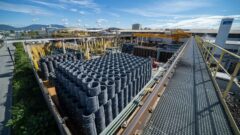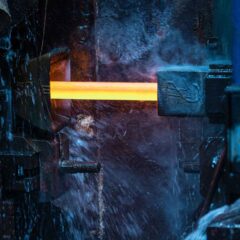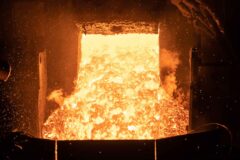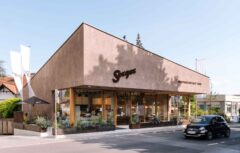Industry is one of the biggest energy consumers in Austria, but there are various ways to optimise the operation of its facilities and systems. One is demand-side management (DSM), which is about regulating demand for services connected to the power grid. DSM can help companies uncover areas of potential for increasing flexibility in order to integrate renewable energy sources into their production processes more effectively and relieve some of the pressure on energy infrastructure by planning energy generation units and consumers in the best possible way. This reduces the capacity necessary for storage systems and improves overall system efficiency.
Developing the DSM toolbox
The NEFI project “DSM_OPT”1 is developing a DSS (decision support system) toolbox that encompasses the use of various demand-side management applications, including energy efficiency (EE), time-dependent tariffs (“time of use”, or TOU) and incorporating changing market conditions (“market demand response”). The project is led by the Chair of Energy Network Technology at the University of Leoben, project partners are the research institution AEE INTEC, the software developer ENEXSA GmbH, the steel and rolling mill Marienhütte GmbH and the bakery Albin Sorger „zum Weinrebenbäcker“ GmbH. Different methods are used to solve the problems depending on the process design and customer requirements involved. For example, “what-if tools”, which mainly cover the areas of energy efficiency and time-dependent tariffs, are suitable for simple process layouts and manual, interactive product planning. Meanwhile, optimisation methods that support automatic process planning are used for complex systems and markets.
Practical Testing at two industrial sites
The user-friendliness of the toolbox is being tested as part of case studies at the sites of the two industry partners (steel and rolling mill and bakery) in Styria. Marienhütte steelworks is hoping to achieve cost savings of between 2 % and 5 % per tonne of steel as a result in the short term. The long-term aim is to increase energy efficiency by 10 %. Sorger, the bakery, is planning to cut its electricity costs by 15 % to 20 % and likewise to improve its energy efficiency by 10 %.
Course of the project
In the project’s first year, the focus was on digitalising the two industrial sites. Digitalisation at the Marienhütte steelworks involved a thorough process analysis as well as data extraction, preparation and evaluation. Any gaps in the data were closed by installing new measuring devices. On Sorger’s industrial site, the relevant measurement points and process parameters on which the modelling was to be based were successfully identified. The load profiles of the main units in the bakery are available and can be put to use in further process analyses. An optimisation framework was also developed that encompasses process modelling followed by embedding in an optimisation routine. The implementation phase is currently under way, focusing on process modelling at both industrial sites. This will be used as a basis for developing the what-if tool for time of use applications and the optimisation routine for market demand response applications.
Project milestones
> Developing a reliable method for forecasting energy consumption at the industrial sites over a specific time horizon
> Developing an optimisation framework for implementing the DSM tools for operation optimisation
> Developing various DSM tools (energy efficiency, time of use, market demand response)
> Implementing and testing the DSM DSS toolbox at two industrial sites
https://www.nefi.at/dsm_opt/
Herbert Fohringer
Managing Director of Stahl- und Walzwerk Marienhütte GmbH
1 DSM_OPT is part of the NEFI (New Energy for Industry) model region, which is promoting the decarbonisation of industrial companies driven by innovation and technology development.
Share





